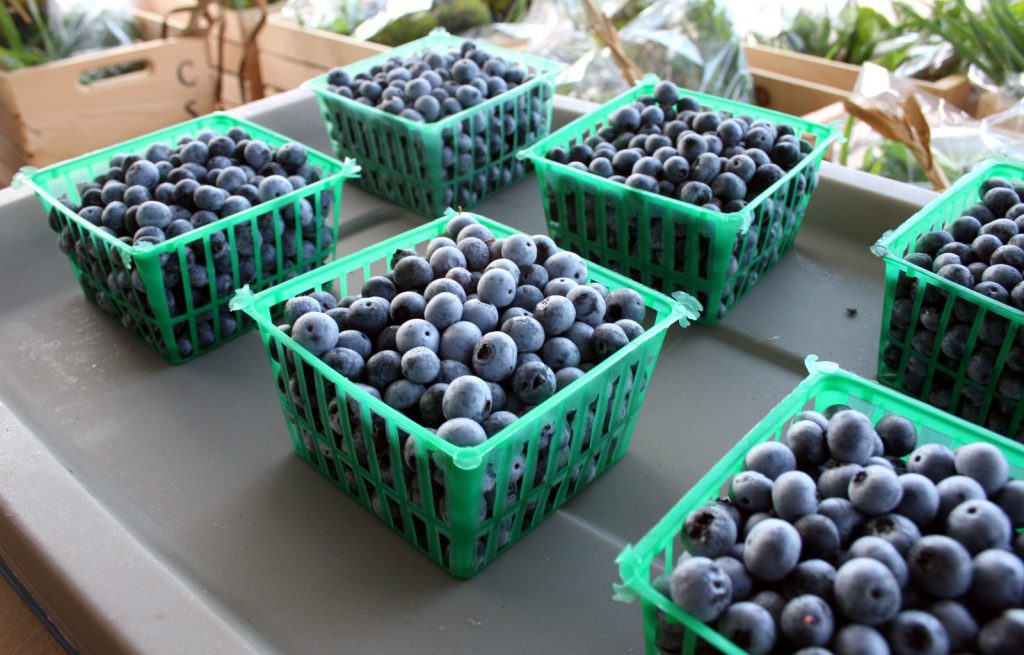
One agricultural lobbyist believes next Tuesday’s hearing with the International Trade Commission (ITC) regarding blueberry imports is a “story of David and Goliath.”
Bob Redding, who works for the Redding Firm and serves as a lobbyist for agricultural groups in Washington, D.C., believes the American Blueberry Growers Alliance (ABGA) has a strong case to make to the ITC against the imports of blueberries from other countries, including Mexico. But cases will also be made from groups who oppose ABGA’s position.
Redding Comments

“Once the administration initiated with the ITC the Section 201 investigation, most of these blueberry countries that are blueberry exporters that have been saturating the markets during our growing season, our marketing season, they hired attorneys here and formed organizations. At least one new organization was formed to stop the 201 or to influence the 201 fight or advocate against the position of U.S. blueberry growers,” Redding said.
“It is a story of David and Goliath. I don’t know any other way to put it. The U.S. growers have been impacted negatively. It’s become increasingly problematic as far as marketing and selling at a fair price that would allow these growers to make a profit. They don’t see how over the long run that they survive selling below what their cost of production is.”
Final Decision Rests with the President
Redding also cautions Southeast producers that the final decision will rest with President-Elect Joe Biden and his administration. He will make a decision based on the recommendations from the ITC.
“We do not know their position on this. I’m sure they don’t have one yet. We have a new U.S. Trade Representative. Ambassador (Robert) Lighthizer initiated this and the administration with the ITC. We know how they felt about it,” Redding said. “We will have a confirmation process in the Senate for the new U.S. Trade Rep. Soon thereafter, we’ll start talking with the political folks in the new administration about this issue. I would think that nomination would move through prior to this case finishing up with the ITC.”
Hearing is Necessary
From a blueberry producer’s standpoint, Tuesday’s hearing is necessary because of the disruption in the marketplace from foreign imports.
According to the American Blueberry Growers Alliance, the U.S. Department of Agriculture Marketing Service reported a 68% increase in imported fruit from Mexico from 2019 to 2020, amounting to more than 15 million pounds of fresh blueberries during a 14-week period. Mexico, along with Peru, Chile, Canada and Argentina account for more than 98% of total U.S. imports. Import values increased from $530 million in 2014 to $1.2 billion in 2019.
This drastically impacts the market for producers in blueberry-producing states, including Georgia and Florida.
ABGA’s Position
The ABGA’s position is that American blueberry producers need protection from rising imports from foreign markets, especially during the U.S. growing and harvest season.
“The numbers are very frightening. They just can’t continue to operate with the market being flooded like this. It just doesn’t work,” Redding said. “You look at the compliance variables that U.S. growers have to adhere to, wage rates. If you’re H-2A, you know what those rates are in the Southeast. That is an expensive program, expensive from an administrative position, running those programs and expensive from a wage rate and housing and all that’s being provided; transportation. These countries don’t have to do that.”
American producers also have to contend with environmental variables and food safety variables; much higher standards than the countries exporting to U.S.
“It’s about fairness. It’s about a level playing field. If our growers had the same variables, our growers know they can compete with these countries. But we’re dealing with a different set of rules. They don’t play by the same rules we do,” Redding said.









